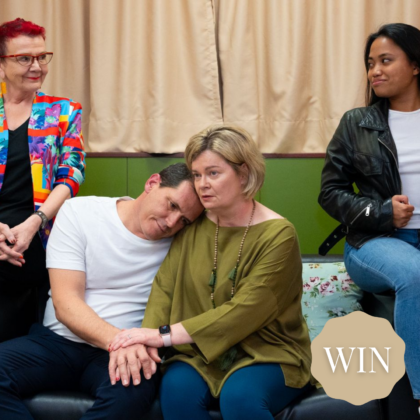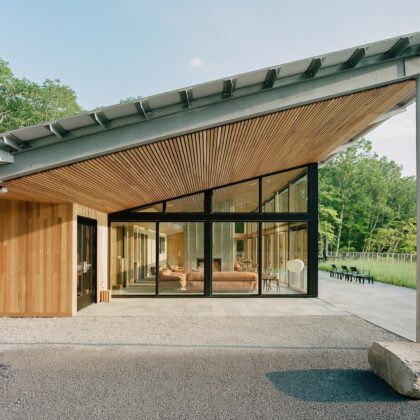A Relationship and Intimacy Coach shares how to beat relationship burnout…
Is the spark in your relationship dying out? Has curiosity turned into contentment? Do you feel like something is missing? Or do you often find yourself lashing out at your partner because you’re irritable and annoyed? If you’re nodding your head at all of the above, then you may be experiencing relationship burnout.
Relationship burnout often creeps up on us. Whether you’ve been married for 10 years or have been dating for a few months, it’s a common occurrence. But burnout doesn’t mean it’s over! It just means that your relationship is calling out for some TLC – and possibly you are too. There are many reasons why we experience relationship burnout. Ahead, we dig deeper into the issue and what we can do to beat it.
Read More: How To Manage Sexual Frustration

Healing Starts With The Self
Being aware that you’re stretched thin or feeling disconnected from your partner can help you take the necessary steps to reassess your own needs. The way to do this is to start focusing your energy on yourself, namely by looking at your own emotional needs and how to fill your cup (instead of being an empty cup that constantly needs to be filled). That way, you’ll have something to bring to the relationship rather than feeling depleted all the time.
Relationship burnout often occurs when one or both halves of a couple put too much energy into the relationship, and get little or nothing in return (which eventually becomes exhausting).
I also encourage you to take some time to hit the reset button and look at where things have gone wrong. Ask yourself the questions: Why do I feel relationship fatigue? When did it start, and where am I responsible? What’s the learning? Once you’ve got some answers, then take the necessary steps for yourself to rewire and fill your cup. When you’re able to come from a place of inner joy, peace, calm and confidence, sit down with your partner and explain to them what your needs are and what you can give, and vice versa.

Letting Go Of Control
Many people struggle to trust others to lead. Fear of letting go is at the root of wanting to always be in control. Here’s the thing, it makes us rigid, constrained and always on guard – leading to burnout in relationships.
Deep down inside, we do not have a fundamental belief that we’ll be okay no matter what (we’re worried that others mess up and things won’t turn out ok). We hold onto this label of control dearly, which leaves us feeling fatigued and leads to resentment. We need to know that the only thing we can control is ourselves, our actions and our choices.
Here are some tips on how you can let go of control:
![]() Journal the answers to these questions: Where do I need to let go of control? Where can I trust more and surrender more (in myself and others)? See if you notice a pattern.
Journal the answers to these questions: Where do I need to let go of control? Where can I trust more and surrender more (in myself and others)? See if you notice a pattern.
![]() Be aware of moments when you’re holding on to control, then change the behaviour. Notice how it feels and see what happens. I also recommend reading the book, Receiving Love. If you’re still struggling, consider speaking with a therapist to help you examine your core beliefs. This way you can get to the bottom of that fear and reframe it, and start living in freedom, regaining your energy.
Be aware of moments when you’re holding on to control, then change the behaviour. Notice how it feels and see what happens. I also recommend reading the book, Receiving Love. If you’re still struggling, consider speaking with a therapist to help you examine your core beliefs. This way you can get to the bottom of that fear and reframe it, and start living in freedom, regaining your energy.
![]() Identify your support structures and delegate to them by inviting them in and asking for help. Your family members, friends – and yes, even your partner – should be capable of providing support. It’s time to trust and let go of the control that’s causing burnout.
Identify your support structures and delegate to them by inviting them in and asking for help. Your family members, friends – and yes, even your partner – should be capable of providing support. It’s time to trust and let go of the control that’s causing burnout.

Creating A Healthy Space
Relationship fatigue can sneak in when we fail to recognise or respect the need to have time to ourselves. Healthy relationships need a mix of togetherness and separateness. Too much closeness leads to burnout and relationship fatigue. Conversely, too much separation leads to breakdown, disappointment and distance.
A healthy amount of space is essential for all kinds of relationships, from friends to family, children and particularly intimate relationships.
It’s time to think of ways we can spend quality time together versus being together whenever we can and not entirely enjoying each other’s company. For example, spend time in separate rooms or doing different things. But then plan to come together to have dinner, go for a walk together or schedule 30 minutes before bedtime to consciously connect (with no phones).
Read more: Work From Home Relationship Tips To Help You Keep The Spark Alive

Bringing The Spark Back
If someone ignores your emotional needs or constantly belittles and controls you, the spark that once made you fall in love with them may fade away. The lack of emotional support and trust can take a toll on your desire to have sex with your partner. Without communication and affection, intimacy of any kind can become a challenge.
To keep the spark alive, we need desire. Desire is the antidote to boredom in a relationship. Without desire, you’ll find yourself getting irritated more, becoming needy, arguing, losing your sense of self, and losing the excitement you once had for the very person you’ve chosen to be with the most.
A great way to ignite desire in the bedroom is to create space, as I’ve mentioned above. But also when you come together (pun intended), to speak each other’s Eros language and keep the fire going. It’s essential to understand your partner’s pathway to desire and the erotic language they speak. Because if we don’t feed each other in our desires, the spark will inevitably diminish. You can your partner can take this quiz to help you discover each other’s erotic language and pathways to deeper intimacy.
Mutually Agree To Work On Healing Together
As important as it is to work on yourself individually, it’s also important to work together as a team. But you both need to mutually agree to work on your relationship if you’re going to beat burnout together. For example, you can plan to spend some quality time together and create nourishing rituals like having coffee together in the morning, meditating together or practising yoga.
Do things that are fun and easy; things that bring back the playfulness in your relationship (think of things that you did when you first started dating). Working together as partners and knowing you’re in this together can develop a sense of connection and stability that’s essential to ending the relationship burnout cycle.
Featured image courtesy of Cody Black via Unsplash, image 1 courtesy of Gary Barnes via Pexels, image 2 courtesy of Snapwire via Pexels, image 3 courtesy of Jonathan Borba via Pexels, image 4 courtesy of Ketut Subiyanto via Pexels.





 Eat & Drink
Eat & Drink



 Travel
Travel


 Style
Style


 Beauty
Beauty



 Health & Wellness
Health & Wellness



 Home & Decor
Home & Decor



 Lifestyle
Lifestyle
 Weddings
Weddings









